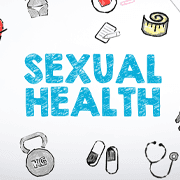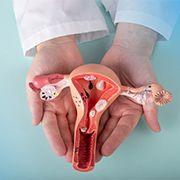How to Handle a Health Diagnosis Without Panic
In This Article
How to Handle a Health Diagnosis Without Panic
Prathibha
Updated on January 17, 2025
Medically verified by Dr. Arya
Fact checked by Dr. Fazeela

Wellness
10 mints
Health challenges can be overwhelming, especially when you’re diagnosed with a condition for the first time. It’s natural to feel fear, uncertainty, or even panic. However, learning to manage your emotions and approach the situation with a clear mind is crucial for making informed decisions about your care. This guide explores practical steps to deal with health issues without succumbing to panic, fostering emotional resilience and growth.
Understanding the Initial Reaction
Being diagnosed with a health condition can trigger a flood of emotions, shock, denial, fear, or even anger. These reactions are normal but can cloud your ability to think rationally. Understanding why you feel this way is the first step toward managing your emotions.
-
Shock and Denial: Often, the brain’s initial response to bad news is to reject it. This is a protective mechanism that allows you to process the situation gradually.
-
Fear of the Unknown: Lack of information about the diagnosis or its implications can fuel anxiety.
-
Sense of Loss: You may feel a loss of control or a sense of mourning for the health you previously took for granted. Recognizing these emotions and validating them is essential. It’s okay to feel overwhelmed, but it’s equally important not to let these feelings dominate your actions.
Steps to Handle a Health Diagnosis Without Panic
1. Pause and Breathe
The first step to managing panic is to pause. Take a few deep breaths to ground yourself. Deep breathing activates your parasympathetic nervous system, helping you calm down and think more clearly. Practice the 4-7-8 Breathing Technique: Inhale for 4 seconds, hold your breath for 7 seconds, and exhale slowly for 8 seconds. Repeat several times. Remind yourself that you don’t need to make decisions immediately. It’s okay to take time to process.
2. Seek Clear Information
Uncertainty is a significant contributor to panic. Gather accurate and detailed information about your condition. Ask Your Doctor Questions: What does the diagnosis mean? What are the treatment options? What’s the prognosis? Request Written Materials: If possible, ask for pamphlets, reports, or trusted online resources to review at home. Avoid Misinformation: Stick to reliable sources like government health websites, hospitals, or respected health organizations.
3. Build a Support System
You don’t have to face a health diagnosis alone. Share your concerns with trusted friends or family members who can provide emotional support. Bring a Loved One to Appointments: They can help take notes, ask questions, and offer moral support.
Join a Support Group: Connecting with others who have experienced similar diagnoses can provide valuable insight and reduce feelings of isolation.
 10mint
10mintSexual Health Matters: How To Maintain Your Sexual Health ?
 10mint
10mintYour Guide to Sexual Health Screening and Preventive Measures
 10 mints
10 mintsSTDs in Women: Comprehensive Guide on Symptoms and Treatments
Get a Callback Now
4. Focus on What You Can Control
A diagnosis may bring uncertainties, but focusing on actionable steps can restore a sense of agency.
-
Follow Your Treatment Plan: Stick to your doctor's recommendations and appointments.
-
Adopt Healthy Habits: Proper nutrition, regular exercise (if advised), and adequate sleep can boost your overall well-being. Set Small Goals: Breaking your recovery journey into manageable steps can make the process feel less daunting.
5. Manage Emotional Health
Emotional growth is as important as physical recovery. Address your mental health proactively to build resilience.
-
Consider Therapy: A counselor or therapist can help you process your emotions and develop coping strategies.
-
Practice Mindfulness: Techniques like meditation, yoga, or journaling can help you stay grounded.
-
Express Yourself: Talk about your feelings with someone you trust or write them down.
The Role of Emotional Growth
Facing a health diagnosis is an opportunity for emotional growth. Here’s how you can channel the experience to build resilience:
1. Shift Your Perspective: Instead of focusing solely on the negatives, look for opportunities to learn about your body and health.
2. Cultivate Gratitude: Focus on what you still have and can do, rather than what you’ve lost.
3. Strengthen Relationships: Use this time to deepen connections with loved ones who support you.
4. Develop Adaptability: Health challenges can teach you how to adapt to new circumstances and embrace change.
When to Seek Professional Help
If your emotions feel unmanageable or you experience prolonged distress, it’s essential to seek professional help.
-
Signs to Watch For: Persistent anxiety, depression, or feelings of hopelessness.
-
Resources Available: Consult a therapist, counselor, or psychiatrist. Many hospitals also offer mental health services for patients.
Conclusion
Receiving a health diagnosis for the first time can be a life-altering moment, but it doesn’t have to define you. You can face the challenge with strength and resilience by managing your emotions, gathering information, and building a strong support system.
Remember, every step you take, no matter how small, is progress toward healing. Embrace this journey as an opportunity for growth. With the right mindset and support, you can transform fear into empowerment and uncertainty into clarity. Remember, every health issue has a solution, and you are stronger than you realize.
Acknowledge Your Emotions: It's normal to experience a range of emotions after a diagnosis, including shock, denial, fear, and anger. Recognizing and accepting these feelings is the first step toward effective coping.
Gather Accurate Information: Understanding your condition empowers you to make informed decisions. Consult reputable sources and ask your healthcare provider detailed questions about your diagnosis and treatment options.
Build a Support Network: Sharing your feelings with trusted friends, family, or support groups can provide emotional relief and practical assistance. Connecting with others facing similar challenges can offer valuable insights and reduce feelings of isola
Focus on Controllable Factors: Adhering to your treatment plan, adopting healthy lifestyle habits, and setting realistic goals can enhance your sense of control and well-being. Concentrate on aspects of your life that you can influence positively.
Seek Professional Support When Needed: If you experience persistent anxiety, depression, or overwhelming stress, consider consulting a mental health professional. Therapists can help you develop coping strategies tailored to your situation.
Source Links
What to Do If Your Chronic Illness Is Taking a Toll on Your Mental Health
You Just Found Out You Have IBS—These Are the 5 Things Experts Recommend Doing First

